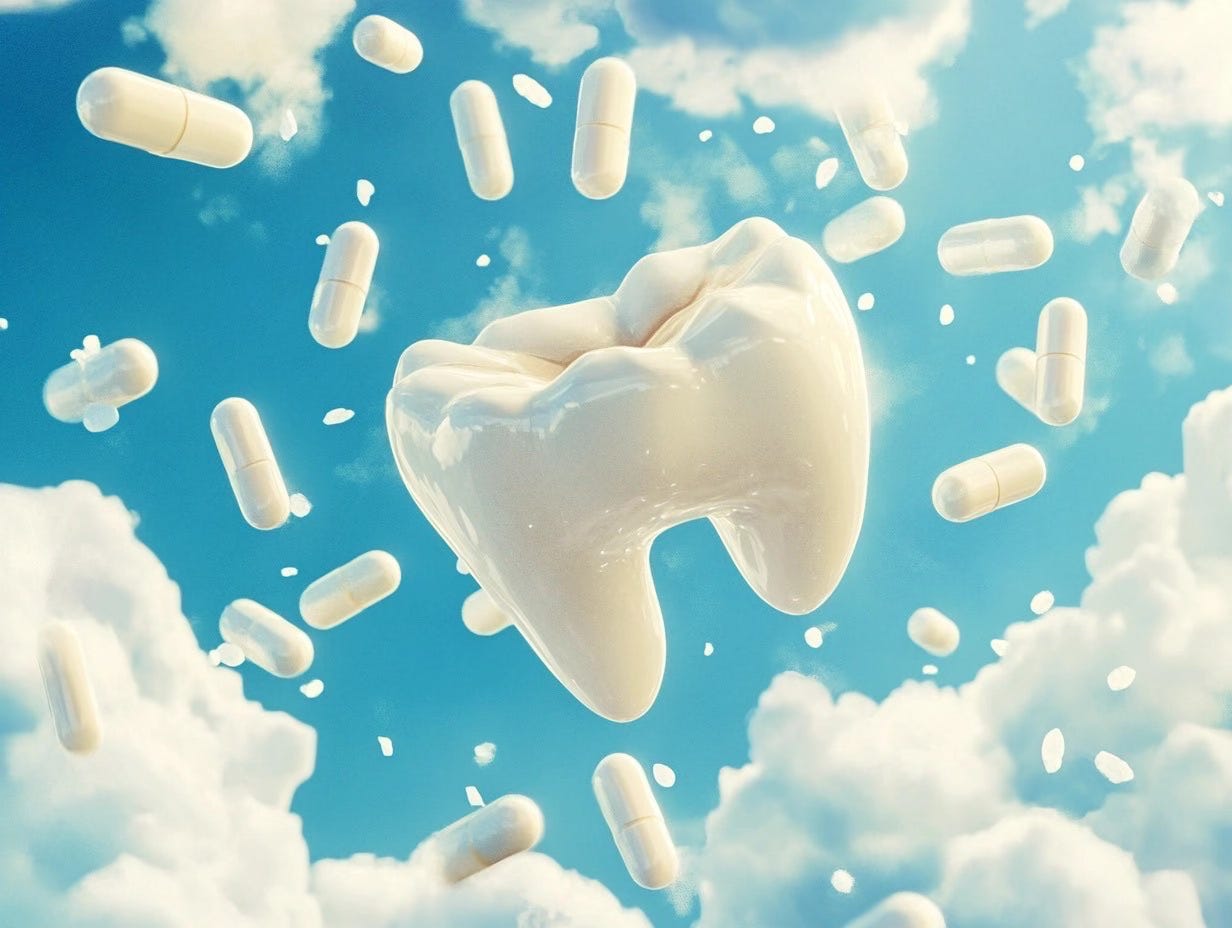Don't let your dentist give you opioids
New RCT shows Tylenol plus Ibuprofen works better than Vicodin
The American dental industry has an opioid problem.
In 2022, dentists in the U.S. wrote nearly 9 million opioid prescriptions. Studies estimate that dental prescribing makes up 7 to 9% of all American opioid prescriptions. Incredibly, American dentists prescribe 20x more opioids than their British counterparts.
Every year, prescriptions written for pain following third-molar extractions alone expose an estimated 5 million opioid-naïve young adults to opioids. This leads to misuse and addiction. One study found that 75% of people who began abusing opioids in the 2000s started with a prescription drug, whether prescribed to them personally or diverted.
According to the American Dental Association these are prescriptions that shouldn’t be written. Guidance from the ADA states that routine opioid prescriptions are not the recommended first-line therapy for acute pain management. Instead, the ADA suggests ibuprofen and acetaminophen in combination. But the ADA has had low certainty in this recommendation based on a lack of evidence, so many dentists still default to opioids.
A new study led by Cecile A. Feldman, DMD should increase ADA confidence in its own recommendation. In a paper detailing the results of the almost 2,000-participant randomized trial, the investigators found that patients taking 400 mg of ibuprofen and 500 mg of acetaminophen (nonopioid) reported significantly less pain on day one and two and no more pain overall than patients given 5 mg of hydrocodone with 300 mg of acetaminophen (opioid).
“At no time did hydrocodone outperform the nonopioid,” the study authors write.
“We recommend the nonopioid combination as the standard of care for this patient population.”
In addition to better pain management, the study reported other findings:
Participants not given opioids were half as likely to fill new opioid prescriptions within 6 months after surgery. This is a crucial indication of causality.
Participants taking opioids were twice as likely to need rescue medication.
Participants not taking opioids experienced adverse effects with lower severity.
Participants not taking opioids reported higher overall satisfaction at their postoperative visit.
While the differences between group pain ratings were less than 10%—i.e. short of “a meaningful clinical difference”—the societal cost of opioids leads to a logical conclusion: “Given the millions of unnecessary opioids dispensed every year and the associated addictive risk of opioids, we recommend the nonopioid combination as the standard of care for this patient population, thereby minimizing the number of opioids in circulation.”






Pain intolerance has escalated correlating with anxiety disorder. Patients these days coming in for a dental cleaning are asking for nitrous, complaining about how painful a blood draw is (frequently even about the tourniquet or a blood pressure cuff!). Any study vilifying opiates these days will get cited. Problem is, now dentists and physicians are reluctant to prescribe opiates for Situations where they are truly indicated. Yes ibuprofen is moderately effective for dental inflammatory pain, however, a study concluding that Tylenol and ibuprofen globally works better than Vicodin is truly questionable. I'm sure there are categories of patients that don't need opiates, but once this gets quoted in the New York Times and on abc News the authors will be responsible for needless suffering in many patients. By vilifying a class of medications we are turning interventional medical treatment back to the Dark Ages. In part you can thank the Sackler family that created millions of opiate addicts for profit. Do no harm includes do not make your patients suffer needlessly if it can be avoided. You shouldn't make global statements.
Probably if there is no real pain